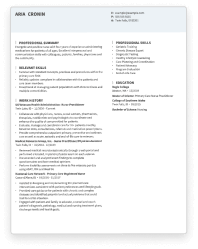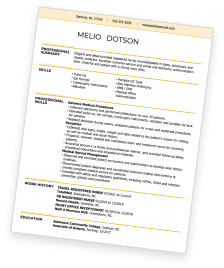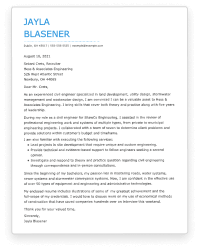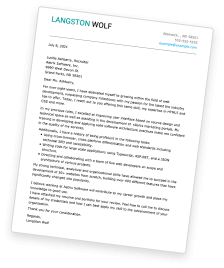Property Manager Resume: Overview
As a property manager, you hold a critical position within the real estate sector, tasked with the comprehensive management of residential, commercial, or industrial properties.
Your role is multifaceted, encompassing tenant relations, property maintenance, lease management, and financial oversight to ensure the property’s profitability and value appreciation.
Your responsibilities might span across various settings, including:
- Residential complexes
- Commercial buildings
- Real estate investment trusts (REITs)
- Property management firms
- Self-managed rental properties
Crafting an exceptional resume is essential to landing your next role as a property manager.
Our downloadable resume templates and standout examples are designed to assist you in highlighting your managerial skills, industry knowledge, and achievements in a manner that resonates with potential employers!
Property Manager Resume: Choose A Format
Crafting a property manager resume starts with selecting the ideal template and format best to showcase your experience and capabilities in property management.
It’s crucial to choose a resume format that highlights your strengths in a way that captures the attention of hiring managers.
There are three main resume formats for property managers to consider:
Chronological Resumes for Property Managers
The chronological resume format is highly recommended for those with significant experience in property management.
This format focuses on your work history, listing your experiences in reverse chronological order.
A property manager might list all relevant positions, such as roles in property management companies, real estate agencies, or residential complexes.
For each position, provide a detailed description of your responsibilities and accomplishments, including the job title, employer’s name, location, and dates of employment.
Highlighting responsibilities and achievements with bullet points that use strong action verbs and quantifiable outcomes can provide a clearer picture of your qualifications.
Chronological resumes are also ATS-friendly, increasing the likelihood that a human recruiter will see your resume.
Functional Resumes for Property Managers
Functional resumes emphasize skills over chronological work history, making them suitable for individuals transitioning into property management from another field or those with less direct experience.
This format allows you to focus on the skills you’ve acquired that are relevant to property management, such as tenant relations, contract negotiation, or facility maintenance, even if they were developed in a different industry.
However, be mindful that functional resumes might not fare as well with ATS systems and can be less familiar to recruiters, potentially affecting your resume’s visibility.
Combination Resumes for Property Managers
A combination resume blends the chronological and functional formats, offering equal emphasis on both skills and experience.
This can be particularly advantageous for property managers with a mix of direct experience and transferable skills.
This format allows you to showcase your property management skills upfront, followed by a chronological list of employment.
It’s ideal for highlighting how your comprehensive skill set aligns with the specific demands of the property management role you’re applying for.
Choosing a Format
Selecting the right resume format is a critical step in the application process.
While the chronological format is generally preferred for its direct presentation of your professional history, the best choice for you depends on your individual career path and experiences.
Consider how each format might best showcase your background in property management or related fields.
Remember, the goal is to present your qualifications in the most compelling and clear manner possible to potential employers.
How To Write A Property Manager Resume
After settling on a format for your property manager resume, you’re ready to start building it out with the essential sections.
Knowing how to write your resume is crucial for showcasing your qualifications and preparing you for success in your property management career.
The five key sections of a resume are:
- Contact Information
- Summary or Objective
- Work History
- Skills
- Education
You can also add additional information in other sections if they are relevant to your qualifications for the property manager job description.
Let’s delve into each section to ensure you cover all the necessary details.
Contact Information
Your contact information should be prominently placed at the top of your resume and include your full name, phone number, professional email address, and your location (city and state).
Additionally, if relevant, include your LinkedIn profile or a link to an online portfolio showcasing your work in property management.
It’s important that your contact information is easily legible and formatted to catch the eye, ensuring your name sticks in the mind of the recruiter or hiring manager, without overpowering the content of your resume.
An example of contact information for a property manager might look something like this:
Jordan Lee
Austin, TX
j.lee@realestatemail.com
555-123-4567
This ensures anyone reviewing your resume can quickly reach out to you for interviews or further discussions regarding your application.
Summary or Objective
Directly following your contact information, your resume should include a profile section that succinctly introduces you to potential employers.
You can opt for either a summary or an objective, depending on your professional background and career goals.
A resume summary is ideal for those with substantial experience in property management. It should provide a brief overview of your key skills, experiences, and professional achievements, alongside your career objectives.
This format is effective for highlighting your readiness for the role and your capacity to add immediate value to the organization.
A compelling resume summary for a property manager might read:
“Seasoned Property Manager with over 10 years of experience managing commercial and residential properties. Expert in tenant relations, lease negotiation, and operational efficiency, leading to a 20% increase in property revenue and a 30% reduction in maintenance costs. Adept at developing and implementing robust property management strategies that enhance property value and ensure high levels of tenant satisfaction.”
A resume objective, on the other hand, is more suitable for those new to the field or looking to make a career change.
It focuses on your career goals and enthusiasm for the property management position, underscoring your commitment and potential contributions to the role, even without extensive direct experience.
An effective resume objective for a property manager might be:
“Driven and detail-oriented professional with a strong background in real estate administration and customer service. Seeking to leverage my experience and skills in a property manager role to contribute to the efficient management and growth of your property portfolio. Eager to apply my expertise in lease administration, property maintenance, and tenant satisfaction to achieve outstanding results.”
Regardless of which option you choose, this section is your chance to weave in relevant keywords from the property manager job description.
This not only helps your resume pass through Applicant Tracking Systems (ATS) but also aligns your qualifications with the employer’s needs, improving your chances of making a strong first impression.
Work History
The “Work History” section of your property manager resume is essential for illustrating your relevant experiences and accomplishments in the field.
This section allows employers to assess your capability to manage properties effectively, showcasing tangible evidence of your professional impact.
Begin with your most recent job position and work backward, focusing on roles that are closely related to property management.
This approach highlights your most pertinent experiences first, ensuring they catch the employer’s attention.
Employ dynamic action verbs to describe your responsibilities and achievements, and where possible, quantify these with numbers or percentages to provide concrete evidence of your impact.
Metrics not only add credibility to your accomplishments but also help differentiate you by showcasing the unique value you bring to the role.
An example of a work history section for a property manager might include:
Senior Property Manager
Downtown Realty Group, City, State
01/2016 to Present
- Oversaw operations, maintenance, and tenant relations for a portfolio of 150+ residential units, achieving a 98% occupancy rate and a 40% decrease in tenant turnover.
- Negotiated and renewed leases, resulting in a 10% increase in annual revenue.
- Implemented a comprehensive property maintenance program, reducing repair and maintenance costs by 25% while improving tenant satisfaction scores by 30%.
- Led the development and launch of a tenant portal, enhancing communication and payment processes, which contributed to a 20% increase in on-time payments.
- Coordinated with contractors and vendors to ensure timely completion of property improvement projects, increasing property values and attracting higher-quality tenants.
This section should not only list your job titles and duties but also highlight your achievements and the skills you utilized to attain them.
It’s your opportunity to demonstrate how your past experiences have prepared you for a property management role, emphasizing your ability to contribute positively to potential employers.
Skills
The skills section of your property manager resume is a critical component that outlines your most relevant abilities for the role.
This should include a combination of hard and soft skills that showcase your most relevant abilities required in the property manager job description.
Just like your work history, this section should focus on skills that are specifically pertinent to property management, demonstrating a balanced set of technical skills and interpersonal capabilities.
Some essential hard skills and soft skills for property managers include:
Top 5 Hard Skills for Property Manager Resumes
- Property Marketing and Leasing: Knowledge of effective marketing strategies and leasing techniques to attract and retain tenants.
- Financial Management: Ability to manage budgets, financial reports, and investment strategies to ensure the profitability of properties.
- Maintenance Coordination: Competence in overseeing property maintenance, including routine upkeep and emergency repairs, to ensure properties are well-maintained and comply with regulations.
- Tenant Relations: Skills in managing tenant inquiries, complaints, and communication effectively to maintain high levels of tenant satisfaction.
- Legal Compliance: Understanding of local, state, and federal housing laws and regulations, including lease agreements, eviction procedures, and safety standards.
Top 5 Soft Skills for Property Manager Resumes
- Communication: Excellent verbal and written communication skills for dealing with tenants, owners, contractors, and real estate agents.
- Problem-solving: Ability to quickly and efficiently solve issues that arise with properties or tenants.
- Organization: Strong organizational skills to manage multiple properties and tasks efficiently.
- Negotiation: Proficiency in negotiating contracts and lease terms that benefit all parties involved.
- Customer Service: Commitment to providing top-notch service to tenants, enhancing tenant retention, and building positive relationships.
An example of how the skills section might appear on a property manager’s resume:
Skills
- Financial Reporting & Budget Management: Proficient in generating accurate financial reports and managing operational budgets.
- Maintenance Oversight: Experienced in coordinating both routine and emergency maintenance tasks.
- Tenant Relations: Skilled in fostering positive relations with tenants, ensuring high retention rates.
- Legal Compliance: Well-versed in housing regulations and lease contract negotiations.
- Communication & Negotiation: Effective communicator and negotiator with tenants, vendors, and property owners.
Alternatively, for a more streamlined approach:
Skills
- Property marketing and leasing strategies
- Budget and financial management
- Maintenance coordination and oversight
- Strong tenant relations and communication
- Legal compliance and negotiation skills
This section provides a snapshot of your capabilities, ensuring potential employers quickly grasp the breadth of your expertise in property management.
Education
In your property manager resume, the education section should list your highest level of education, including the degree obtained, the institution’s name, and its location.
If recent, you can also add your graduation date, any relevant coursework, honors, or certifications you’ve achieved.
While specific educational requirements for property managers can vary depending on the employer and the state, having a background in real estate, business administration, or a related field can be advantageous.
An example of the education section for a property manager might look like this:
University of State
City, State
Bachelor of Science in Business Administration, Concentration in Real Estate
This section of your resume provides a foundation for your expertise and skills in property management, indicating your preparedness for the responsibilities the role entails.
Additional Sections
Adding additional sections to your property manager resume can enrich your application, especially if they highlight experiences and qualifications that set you apart from other candidates.
Consider including any of the following if they’re relevant and concise:
- Certifications: Professional certifications like a Real Estate Broker’s license, Certified Property Manager (CPM) from the Institute of Real Estate Management, or Residential Management Professional (RMP) can significantly bolster your credentials.
- Volunteer Experience: Volunteer work that demonstrates leadership, community engagement, or relevant skills to property management can be a valuable addition.
- Professional Associations: Membership in professional associations such as the National Association of Residential Property Managers (NARPM) shows a commitment to staying informed about industry standards and practices.
- Awards and Honors: Recognition for your work in property management or related fields can set you apart as a top performer.
- Relevant Hobbies: Hobbies that demonstrate skills applicable to property management, such as renovation projects or real estate investing, can provide a more comprehensive view of your interests and capabilities.
Including these additional sections can offer a more holistic view of your qualifications and personality, making your resume more memorable to potential employers.
Top Certifications for Property Managers
Certifications can significantly enhance a property manager’s resume, providing proof of expertise and commitment to professional development.
While not all positions require certifications, they can set you apart in a competitive field.
Here are some key certifications relevant to property management:
- Certified Property Manager (CPM): Offered by the Institute of Real Estate Management (IREM), this certification is recognized globally and signifies expertise in property and asset management.
- Residential Management Professional (RMP): Granted by the National Association of Residential Property Managers (NARPM), this certification is for those specializing in residential property management.
- Certified Apartment Manager (CAM): This certification from the National Apartment Association (NAA) focuses on the management of apartment complexes and rental properties, covering aspects like financial management and legal issues.
- Certified Manager of Community Associations (CMCA): Offered by the Community Association Managers International Certification Board (CAMICB), this certification is for managers of homeowner and condominium associations and co-operatives.
- Accredited Residential Manager (ARM): This credential, also from IREM, focuses on managers of residential properties, enhancing their skills in leasing, marketing, maintenance, and risk management.
7 Tips For Writing A Property Manager Resume
Tailor Your Resume: Customize your resume for each application to match the specific needs and expectations outlined in the property manager job posting. Highlight experiences and skills that are most relevant to the role you’re applying for.
Use Action Verbs: Employ strong action verbs to describe your responsibilities and achievements. Words like “managed,” “optimized,” “negotiated,” and “implemented” can make your resume more dynamic and impactful.
Highlight Achievements: Quantify your successes wherever possible. For example, mention the percentage by which you increased occupancy rates, the amount of revenue you generated, or how much you reduced operational costs. This adds credibility to your accomplishments.
Incorporate Keywords: Review the job listing for keywords and phrases related to property management and integrate them into your resume. This ensures your resume is optimized for Applicant Tracking Systems (ATS) and highlights your relevant expertise.
Detail Your Skills: Include both technical skills (like property marketing, financial reporting, and maintenance coordination) and soft skills (such as communication, problem-solving, and customer service). This showcases your well-rounded capability as a property manager.
Education and Certifications: Clearly list any relevant education and certifications, especially those that are directly applicable to property management, such as a Real Estate License, Certified Property Manager (CPM), or other industry-recognized certifications.
Proofread: An error-free resume is crucial. It reflects your professionalism and attention to detail. Check for grammar and spelling errors to ensure your resume presents you in the best light possible.
View Similar Resume Examples


Use Hloom's Resume Builder
Key Takeaways
- Property managers play a pivotal role in real estate, managing operational aspects of properties to ensure profitability and tenant satisfaction. Their responsibilities are diverse, requiring a blend of interpersonal, technical, and administrative skills.
- Choosing the right resume format (chronological, functional, or combination) can significantly impact how potential employers perceive your experiences and skills. The chronological format is often preferred for its straightforward presentation of your professional trajectory.
- Highlight both your hard and soft skills, emphasizing achievements with quantifiable metrics to showcase your effectiveness in managing properties, improving occupancy rates, and enhancing tenant relations.
- Ensure your resume is optimized for Applicant Tracking Systems (ATS) by including relevant keywords from the job posting, and proofread your resume to avoid errors, presenting a professional and attentive-to-detail image to prospective employers.
Use Hloom's Cover Letter Builder














